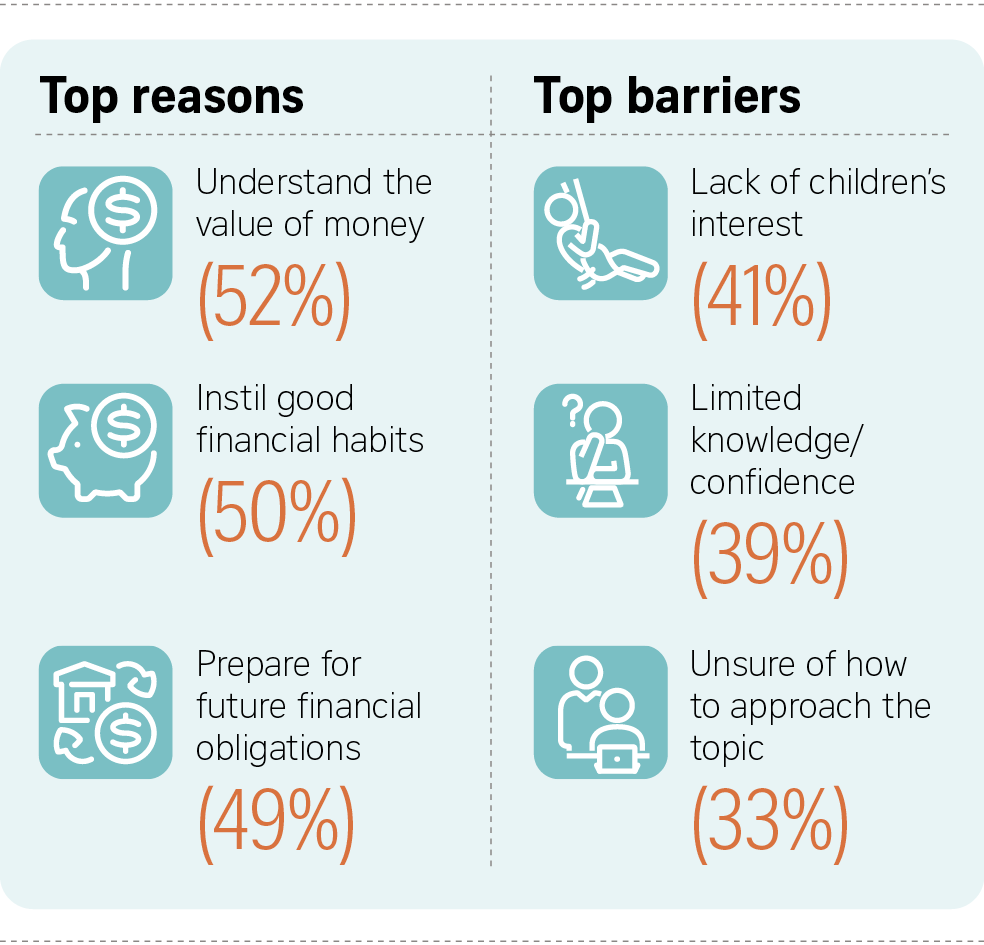BRANDED CONTENT
Millennials want to retire by 60, but are they making the right money moves to get there?
Challenges include cost of living and inflation concerns, and a preference for low-risk investment tools, notes a recent survey

Over half of the millennials polled anticipate their monthly retirement expenses to stay under $6,000.
PHOTO: GETTY IMAGES
Nicholas Yong, Brand Newsroom
Follow topic:
When Ms Sarah Ong started planning for her retirement in her late 20s, the goal was to retire by 60.
She was working in a bank then, running CSR (corporate social responsibility) programmes on financial literacy for lower-income individuals. “The exposure made me more aware of the need to plan for the future,” recalls Ms Ong.
Now 35, Ms Ong is married and lives in an executive Housing Board flat. She juggles caring for two young children, aged one and four, and ageing parents – all while coping with rising costs.
Her priorities have evolved: She and her husband are now actively planning to pay off their mortgage, fund their children’s education and ultimately, have enough savings for retirement.
To reach these goals, Ms Ong, who works on government and regulatory affairs at a multinational tech firm, has worked with a wealth planner for close to a decade.
“My challenge is to better grow my savings so that I can beat inflation and retire comfortably,” she says.
Ms Ong still aims to retire at 60, and stay active in her golden years. “I would still want (the means) to take on new skills and remain purposeful through part-time work” and personal interests like volunteering, she says.
What worries them
Ms Ong’s sentiments mirror those of her peers. Over half of millennials (defined as those aged 29 to 43) want to retire between 50 and 60 years old, revealed the Retirement Insights Report 2024 by Etiqa Insurance Singapore.
However, rising costs of living and inflation (35 per cent), healthcare costs (30 per cent) and having insufficient savings (28 per cent), are among their top retirement concerns.
Core inflation in Singapore, which excludes private transport and accommodation costs, has eased from a high of 5.5 per cent in January 2023. It hovered at 3.1 per cent between March and May, before falling to 2.9 per cent in June and 2.5 per cent in July. It rose to 2.7 per cent in August.
Conducted in June by data and analytics firm Kantar Profiles, the survey polled over 1,000 respondents in Singapore aged 18 and older on their retirement views.
“Millennials and Gen Zs (aged 18 to 28) are expected to live longer than previous generations due to advancements in healthcare and lifestyle improvements,” notes Mr Raymond Ong, chief executive officer of Etiqa Insurance Singapore.
In 2023, the average life expectancy of Singapore residents at birth was 83 years, according to the Department of Statistics.
Living longer means having to plan for a longer retirement, says Mr Ong. “A lack of planning can have significant long-term consequences, including financial hardship, reduced quality of life and limited healthcare options.”
Balance risk, returns
So how are millennials working towards their retirement goals?
The study revealed their reliance on savings accounts (65 per cent), Central Provident Fund (CPF) savings (54 per cent) and fixed deposits or savings bonds (52 per cent).
Is this enough? “While (these tools) provide security and stability, there is a potential missed opportunity for higher returns through compound interest on higher-risk investments,” says Mr Ong.
He suggests a balanced mix that evolves with age:
- Early career: Allocating a larger portion to equities or mutual funds can provide the potential for higher returns and capital growth.
- Mid career: Consider gradually reducing exposure to high-risk options. Investment-linked plans can help to grow wealth while providing life insurance coverage. Continued focus on CPF top-ups may also help towards housing and healthcare costs.
- Near retirement: Low-risk investments like bonds and fixed-income securities can provide a safer haven for retirement savings, along with a steady income stream from annuities, dividends or property rental.
“Starting retirement planning early is ideal, but even if you begin late, you can still build a solid nest egg by saving more and investing wisely,” says Mr Ong.
“Early planning offers more benefits, but diligent efforts later on can still ensure a secure retirement.”

Start them young
When it comes to financial literacy, is there a right age to start? Not particularly, suggests findings from Etiqa’s Retirement Insights Report 2024.
Among the 86 per cent of respondents that have started exposing their children to basic financial concepts, the majority (37 per cent) did so between the ages of seven and 12.
Some started before their children turned seven (15 per cent), while a fifth waited till they were 17 and older.
Ms Ong belongs to the former. She teaches basic concepts to her four-year-old son, such as saving his hongbao money in a bank account.
What else do parents say about teaching financial skills to their children?

- Click here to read more insights from Etiqa Insurance Singapore’s Retirement Insights Report 2024.
This was produced in partnership with


